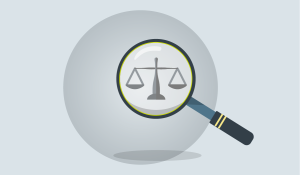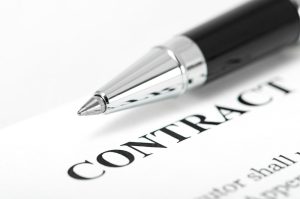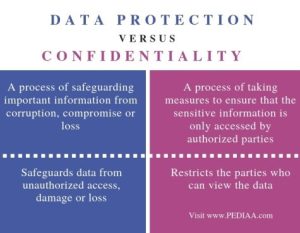INTRODUCTION TO LEGAL WRITING SERVICES

Legal writing services offer expertly crafted, precise, and coherent documents tailored to meet the requirements and standards of the legal profession.
In today’s fast-paced legal landscape, the importance of effective communication is paramount. Amidst the barrage of legal jargon and complex terminologies, one beacon of clarity stands out: legal writing services. These services bridge the gap between dense legal content and the need for understandable, concise information.
LEGAL WRITING SERVICES
At its core, legal writing services offer specialized assistance in crafting various legal documents and content. From drafting intricate contracts, legal memos, and briefs to developing comprehensive legal articles or case summaries. These services cater to the vast writing needs of the legal world. It isn’t just about putting words on paper but also ensuring those words resonate clarity, precision, and articulate the complexities of the law in a manner that’s both professional and comprehensible. Legal writing services are viewed as translators, adeptly converting the rigorous language of the law into accessible content for lawyers, clients, and even the common reader.
IMPORTANCE OF PROFESSIONAL LEGAL WRITING IN THE LEGAL FIELD.
Professional legal writing isn’t a mere luxury in the legal domain; it’s an essential tool. Here’s why:
- Precision Matters: In the legal arena, every word can tip the balance. Ambiguous language or unclear clauses can lead to misunderstandings, affecting legal outcomes. Expert legal writing ensures the language is both accurate and to the point, eliminating any grey areas.
- Time is of the essence: Lawyers, paralegals, and other legal professionals are often swamped with work. Well-structured and clear documents, produced by professional writing services, can significantly reduce reading time, making the decision-making process swifter.
- Establishing Authority: A professionally written legal document or article exudes authority. It reflects the expertise, attention to detail, and diligence, enhancing the credibility of the individual or firm presenting it.
- Empowering Clients: Legal decisions are monumental. Clients need clarity to understand their standing, rights, or obligations in any legal situation. Through articulate writing, legal writing services ensure clients are not lost in translation, enabling them to make informed decisions.
- Upholding Justice: Beyond business, the law serves a higher purpose – justice. Transparent, clear, and fair communication, facilitated by professional legal writing ensure that justice isn’t just served but is also seen to be served.
TYPES OF LEGAL WRITING SERVICES
Having understood the pivotal role and importance of legal writing services in the modern legal arena, it’s essential to appreciate the breadth and depth of services offered. Just as the field of law is vast, encompassing everything from criminal to corporate spheres, so is the range of writing services tailored to meet these multifaceted needs. These are some of the core types of legal writing services:
- BRIEFS AND MOTIONS WRITING
One of the primary tools in a lawyer’s work is the legal brief. It’s a document that presents and argument, articulating why the attorney’s clients should prevail in their suit. Writing briefs require a perfect blend of fact, law and persuasive arguments. Legal writing services with their expertise, craft compelling briefs that are concise yet comprehensive. Motions also require precision in their articulation. They can range from motions to dismiss a case to motions of summary judgement. In such documents, every word holds weight and is vital thus making the role of legal writing services invaluable.
- LEGAL RESEARCH AND MEMOS

Involves analysing information to find answers to legal questions and documents them.
Before a lawyer steps into a courtroom or advises a client, extensive legal research is required. It’s the bedrock upon which cases are built. Legal writing services offer in-depth research, sifting through statutes, case laws, and legal journals to gather relevant information. Once this research is done, it’s often synthesized into a legal memo—a document that outlines the facts, laws, and analysis pertinent to a particular legal issue. These memos serve as foundational guides for attorneys, offering a clear roadmap of the legal landscape they are navigating.
- CONTRACT DRAFTING
Contracts establish the rights and obligations of the parties involved and provide clarity and legal protection.

In the business world, contracts are the ties that bind. These documents outline the rights, responsibilities, and obligations of parties involved. Whether it’s a merger agreement between two corporations or a service contract between a business and a vendor, clarity is paramount. Legal writing services excel in drafting contracts that are watertight, ensuring that terms are clear, obligations are defined, and parties are protected. Given the potential disputes that can arise from poorly drafted contracts, this service is crucial for any entity entering into a contractual relationship.
- WILL AND TESTAMENT WRITING

Legal documents to outline a person’s wishes in regards to the distribution of their assets after they pass.
Perhaps one of the most personal and profound legal documents one will ever deal with is a will. It dictates the distribution of an individual’s assets after their demise. A well-crafted will ensures that a person’s final wishes are honoured and potential disputes among heirs are minimized. Legal writing services approach will and testament writing with sensitivity, precision, and a keen understanding of the applicable laws. They ensure that the document is both legally sound and reflective of the individual’s final wishes.
BENEFITS OF OUTSOURCING LEGAL WRITING SERVICES
The world of law is dynamic, constantly evolving with intricacies that require a precise touch and an informed mind. Legal writing is no exception. As we delve further into the intricacies of the legal profession, one emerging trend is the increasing inclination of firms and independent lawyers towards outsourcing their legal writing tasks. It’s a shift fuelled by a range of benefits, many of which are reshaping the very fabric of the legal landscape. Let’s explore why legal writing services, previously mentioned, are gaining such traction in the industry.
- Cost-effectiveness; In the realm of business, financial prudence is paramount. The decision to outsource legal writing can result in significant cost savings for firms and individual lawyers. Hiring full-time, in-house legal writers or researchers means committing to monthly salaries, benefits, and other associated costs. In contrast, outsourcing allows for flexibility. Firms can engage legal writing services on an as-needed basis, eliminating the overhead costs associated with permanent hires. This model not only trims down expenses but ensures that firms only pay for what they need when they need it.
- Access to Specialized Expertise; The spectrum of law is vast. From criminal to civil, from corporate to personal, each branch has its unique nuances and complexities. Outsourcing to specialized legal writing services ensures that lawyers have access to experts specifically trained in the required niche. It’s about harnessing the best talent without the need to search or train them. For instance, if a lawyer needs a contract drafted, they can reach out to a service specializing in contract law. Similarly, for a will and testament, they can tap into the expertise of professionals who focus solely on estate planning. This specialized knowledge enhances the quality of the document, ensuring its compliance and effectiveness.
- Efficiency and Time-saving; Time is a valuable asset, especially for lawyers who often juggle multiple cases simultaneously. Outsourcing legal writing tasks can free up significant amounts of time. Instead of spending long hours researching, drafting, and editing, lawyers can allocate these tasks to professional legal writers. These professionals, equipped with the necessary skills and resources, can turn around tasks faster and with precision. This efficiency doesn’t only result in time savings but also ensures that lawyers can allocate more time to client interaction, court appearances, and other core functions of their profession. Moreover, with the expertise that these services bring to the table, there’s a reduced need for multiple revisions. Every document is tailored to the client’s needs and adheres to the highest standards of legal writing. The drafts received are court-ready, significantly shortening the time from client consultation to court presentation.
In essence, the world of legal practice is ever-evolving, and adapting to the current trends is vital for sustainability and growth. Outsourcing legal writing tasks to specialized services is not just a trend; it’s a strategic decision backed by tangible benefits. It embodies the ethos of working smarter, leveraging external expertise, and ensuring optimal resource allocation. And as the demands of the profession grow, the allure of these services will only magnify, establishing them as an integral cog in the legal machinery.

Hiring external professionals and delegate them to handle their research and drafting of legal documents is beneficial to the firm.
CHOOSING THE RIGHT LEGAL WRITING SERVICES
It is important to find a service that aligns with your specific needs and provide high quality work.

In the burgeoning world of legal services, the emergence of specialized legal writing providers has offered significant advantages to firms and independent lawyers. As we’ve seen, from cost-effectiveness to specialized expertise, the merits of such services are numerous. Yet, as with any industry seeing rapid growth, the challenge of selecting the right provider becomes paramount. Here’s a deep dive into navigating this selection process, ensuring that the legal writing services you opt for are not just competent, but truly exceptional.
FACTORS TO CONSIDER WHEN DIVING INTO THE WORLD OF ‘LEGAL WRITING SERVICES
Several core considerations can make the difference between a seamless experience and a challenging ordeal.
- Experience and Expertise: The legal realm is vast, with multiple niches. opt for a service that specializes in your area of need. If you’re in corporate law, a service well-versed in criminal law might not be the best fit, regardless of their stellar reviews.
- Turnaround Time: The legal world waits for no one. Deadlines are often tight, and timely submissions can be crucial. The service’s ability to deliver high-quality work within stipulated timelines is essential.
- Confidentiality Assurance: Legal documents are sensitive. Ensure that the service you select has strict confidentiality protocols in place, preferably backed by non-disclosure agreements.
- Customizability and Flexibility: Every case is unique. The chosen service should demonstrate an ability to adapt to specific client needs and provide tailor-made solutions.
NEGATIVES FACTORS TO LOOK OUT FOR
Just as there are markers of a top-tier legal writing service, there are warning signs of those best avoided.
- One-size-fits-all Approach: Legal needs are often intricate and case-specific. If a service offers generic solutions without a deep dive into the unique aspects of your case, it’s a concern.
- Lack of Transparent Pricing: If a service is evasive about their pricing or if there are hidden charges, consider it a red flag. Transparent pricing models reflect integrity.
- Limited or No Samples: Quality legal writing services often have a portfolio of anonymized samples to showcase their expertise. A lack thereof can be indicative of limited experience or confidence.
RECOMMENDATIONS AND REVIEWS
Reading reviews from other clients can give you insights into experiences and help you make an informed decision.

How Much They Matter in today’s digital age, recommendations and reviews have become the modern word-of-mouth, and in the realm of legal writing services, they play a pivotal role.
- Trustworthiness: Reviews provide insight into the trustworthiness and reliability of a service. Past client experiences can give a glimpse of what to expect.
- Quality Assurance: Recommendations, especially from peers or colleagues, can attest to the quality of work delivered. It’s an endorsement of a service’s capabilities.
- Potential Challenges: Negative reviews, when constructive, can highlight potential challenges or areas where a service might be lacking.
However, while reviews are invaluable, it’s vital to approach them judiciously. Not all reviews are created equal. It’s crucial to differentiate between genuine feedback and outliers or potential outliers. Moreover, consider the volume and consistency of reviews. A single negative review amidst a sea of positive ones might be an exception rather than the rule.
To wrap up this segment, while the advantages of outsourcing to legal writing services are manifold, the key lies in selecting the right partner. A strategic, informed approach to this selection can ensure that the myriad benefits of such services are fully realized, propelling legal practices to new heights of efficiency and excellence.
THE PROCESS OF LEGAL WRITING SERVICES
Navigating through the realms of the legal industry, especially when discussions revolve around ‘legal writing services,’ understanding the workflow is fundamental. As we’ve earlier deliberated on the criteria for choosing the right service, it’s equally essential to have a clear roadmap of what the journey with a legal writing service looks like. This demystification not only ensures better client-service synergy but also optimizes the outcomes of the collaboration.
- Initial Consultation and Requirement Gathering Every exceptional legal writing project kicks off with an in-depth initial consultation. This phase serves as the cornerstone for the entire process, ensuring both the client and the service provider are aligned.
- Understanding Specific Needs: During this stage, the writing service seeks to understand the unique legal challenges and requirements of the client. This could involve discussions about the specifics of a case, the intended audience of the document, or the jurisdictional nuances that need attention.
- Setting Expectations: Clear communication about timelines, costs, and other deliverables is vital. Both parties need to set and understand expectations to ensure the process runs smoothly.
- Drafting Process Once the consultation phase is wrapped up, the core of ‘legal writing services’ – the drafting process – begins in earnest.
- Research: A rigorous research phase is initiated. Given the complexities inherent to law, writers delve deep into statutes, case laws, and other pertinent legal sources to ensure accuracy and relevance.
- Structuring: The gathered information is then organized into a coherent structure, ensuring logical flow and comprehensibility.
- Drafting: With the research and structuring in place, the actual drafting commences. The writer ensures that the language is precise, legally sound, and tailored to the client’s needs.
- Revisions and Feedback Loop No legal document is perfect in its first iteration. Recognizing this, a critical phase in the collaboration with legal writing services is the feedback loop.
- Client Review: Once the initial draft is ready, it’s shared with the client for review. The client is encouraged to provide feedback, raise queries, or suggest modifications.
- Iterative Revisions: Based on the feedback, revisions are made. This iterative process continues until the document meets the client’s expectations and adheres to legal standards.
- Quality Assurance: Many legal writing services also have a secondary review mechanism, wherein a senior legal writer or editor reviews the document for any oversights, ensuring another layer of quality check.
- Final Delivery and Follow-Up The culmination of this intricate journey is the final delivery.
- Document Handover: Once all revisions are incorporated and both parties are satisfied, the final document is handed over to the client. This is often accompanied by a summary or a brief that elucidates the key points of the document.
- Follow-Up: Top-tier legal writing services don’t end their commitment with the delivery. They often engage in a follow-up process, ensuring that the client has no further doubts or needs any additional modifications.
In summary, the journey with a legal writing service is a meticulous blend of collaboration, expertise, and commitment. By understanding the process, clients can better harness the potentials of such services, ensuring that the resulting legal documents are not only watertight but also tailored perfectly to their unique needs and challenges.
ETHICAL CONSIDERATIONS IN LEGAL WRITING SERVICES
It’s important to choose a service that upholds these ethical principles.
In the intricate world of ‘legal writing services’, just as we’ve delved into processes and criteria for selection, the ethical dimensions play an equally pivotal role. Legal documents are not just pieces of paper; they carry within them the weight of justice, rights, and responsibilities. Hence, any service related to their creation and management must be rooted in strong ethical foundations.
CONFIDENTIALITY AND CLIENT DATA PROTECTION
- The Trust Paradigm: The very foundation of any engagement with legal writing services rests upon trust. Clients share sensitive information, expecting that their data will remain strictly confidential. Any breach, intentional or unintentional, can lead to disastrous consequences, both legally and reputation-wise.
- Data Management Protocols: Top-tier legal writing services employ state-of-the-art data management and encryption tools. These ensure that client data is not only stored securely but also transmitted in a manner that is immune to breaches. Moreover, regular audits and access controls further fortify the data protection mechanisms.

Look for providers that have robust data protection measures in place and adhere to strict confidentiality policies and safeguard your sensitive information
PLAGIARISM CONCERNS
- The Uniqueness Imperative: In the world of law, unlike other forms of writing, plagiarism doesn’t just represent a theft of intellectual property; it can also lead to legal consequences. Replicating a legal argument or copying clauses without understanding or customization can harm a case or render a contract void.
- Tools and Training: Reputed legal writing services often employ advanced plagiarism detection tools, ensuring that every document churned out is unique and authentic. Additionally, continuous training is provided to legal writers, emphasizing the importance of originality and teaching them to draw inspiration without direct copying.
- Disclosure and Conflict of Interest
- Transparency at Forefront: Just as a lawyer must disclose any potential conflict of interest to their client, legal writing services must also maintain a transparent relationship with their clients. If, for instance, they have been engaged by two opposing parties in a litigation, even if just for research or drafting, this needs to be openly disclosed.
- Policy-Driven Approach: Ethical legal writing services operate on well-defined policies that chart out potential conflict scenarios and provide guidelines on how to manage them. By setting clear boundaries, these services ensure that their commitment to one client doesn’t inadvertently harm another.
- Regular Checks: Internal systems are often in place to check for conflicts of interest regularly. These systems cross-reference client data, ensuring that any potential conflict is flagged at the outset, even before the actual engagement begins.
In tying it back to our previous explorations, while understanding the process and criteria for selecting a ‘legal writing service’ is crucial, gauging the ethical compass of the service is equally vital. The ethics involved are not just about adherence to moral principles but also have legal implications. Hence, in this nuanced space where law and morality often intertwine, ensuring that your chosen legal writing service operates on the highest ethical standards is non-negotiable.
IMPROVING LEGAL WRITING: TIPS FOR LAW PROFESSIONALS
Following our extensive discussion on ‘legal writing services’ and the core ethical considerations that envelop them, it’s pertinent to dive into a dimension that benefits law professionals directly: enhancing their legal writing prowess. As the bedrock of legal proceedings and communications, legal writing’s clarity, precision, and efficacy can often influence judgments, client relationships, and a firm’s reputation.
Common Mistakes to Avoid
- Ambiguity: The world of law is built on definitions and clarity. Ambiguous phrasing or the use of vague terms can not only make a document challenging to interpret but can also have legal repercussions.
- Overuse of Legalese: While technical terms are inevitable in legal documents, excessive use of jargon can make documents inaccessible to clients and even some professionals.
- Lack of Structure: Unlike narrative writing, legal documents thrive on structure. A lack of coherent organization can make even a well-researched document appear shoddy and hard to follow.
Best Practices in Legal Writing
- Active Voice Over Passive: “The motion was filed by the attorney” sounds more convoluted than “The attorney filed the motion.” Active voice lends clarity and directness to the sentence, making it easier for readers to understand the action and its doer.
- Keep Sentences Short: Long-winded sentences can lose readers and open up possibilities for misinterpretation. It’s best to keep them concise.
- Use Headings and Subheadings: Breaking down a lengthy document with relevant headings can guide the reader and provide a roadmap of the content.
- Avoid Redundancies: Phrases like “null and void” or “terms and conditions” can often be shortened without losing meaning. Such redundancies, while traditional, can make a document tiring to read.
- Proofread Multiple Times: A minor typographical error in a legal document can have significant implications. Multiple proofreads, preferably by different individuals, can help catch and rectify such mistakes.
Continued Learning and Training
- Legal Writing Workshops: These focused workshops are tailored to address the unique challenges of legal writing. Regular participation can introduce lawyers to new techniques, updates in legal language, or even changes in documentation norms.
- Peer Review: Having a colleague or a senior review your document can offer fresh perspectives, catch overlooked mistakes, and provide constructive criticism.
- Stay Updated with Jurisprudence: As laws evolve, so does the language of the law. Staying updated with landmark judgments, legislative changes, and significant legal events can inform and enrich a legal professional’s writing.
- Engage with ‘Legal Writing Services’: As these services specialize in crafting and refining legal documents, engaging with them or even undergoing a stint can significantly enhance a lawyer’s writing repertoire.
In the realm of law, where every word can tilt the scales of justice, the importance of impeccable legal writing cannot be overstated. It’s not just about penning down arguments or clauses but about ensuring that they stand robust against scrutiny, are easily comprehensible, and most importantly, serve the cause of justice. As we’ve traversed from understanding ‘legal writing services’ to diving deep into the art itself, it’s evident that this form of writing is both a science and an art, demanding continuous refinement and learning.
TECHNOLOGICAL INTEGRATION IN LEGAL WRITING SERVICES
It’s worth considering services that leverage technology to provide a seamless and efficient experience.
INTERGRATING TECHNOLOGY IN THE FIELD
Navigating the intricate corridors of the legal world, we’ve extensively discussed the essence of ‘legal writing services’, the ethical dimensions, and tips to refine the craft. As the world gravitates towards digitization, even the traditional bastions of legal procedures aren’t immune. The integration of technology into legal writing services has ushered in a new era, optimizing processes and introducing precision, efficiency, and security.
LEGAL WRITING SOFTWARE AND TOOLS
With the rapid evolution of technology, several software and tools have emerged to aid legal professionals in their writing endeavours:
- Document Management Systems (DMS): Platforms like Clio or My Case help lawyers manage, store, and retrieve documents efficiently. Their cloud-based nature ensures that vast case files are just a click away.
- Legal Research Platforms: Tools such as Westlaw or LexisNexis expedite the legal research process, providing access to a plethora of case laws, statutes, and legal literature. This expedites the research process that’s foundational to any ‘legal writing services’.
- Grammar and Style Checkers: Software like Grammarly or Prewriting, while not exclusive to legal writing, ensure that the documents are free from grammatical errors and stylistic inconsistencies.
- Reference Managers: Platforms like Zotero or Mendeley assist lawyers in organizing research materials, ensuring citations are accurate and aiding in the creation of bibliographies.
Digital Security Measures
In an era where data breaches and cyber threats are rampant, securing sensitive legal documents becomes paramount. ‘Legal writing services’ have thus adopted multiple digital security protocols:
- End-to-End Encryption: Many modern document management systems employ end-to-end encryption, ensuring that documents remain confidential during both storage and transmission.
- Multi-Factor Authentication (MFA): This additional security layer requires users to provide two or more verification forms, substantially reducing unauthorized access risks.
- Regular Backups: Cloud-based solutions automatically backup documents, ensuring that in the event of unforeseen data losses, recovery is quick and comprehensive.
- Firewalls and Antivirus Software: These are the first line of defines against malicious software or hacking attempts, safeguarding sensitive legal data.
Benefits of Technology-Driven Legal Writing
Marrying technology with ‘legal writing services’ has myriad advantages, fundamentally reshaping how legal professionals approach their craft:
- Efficiency: Advanced research tools, combined with AI-driven analytics, enable lawyers to access relevant data faster, reducing the time spent on background work.
- Accuracy: Automated grammar checkers and style editors ensure the final documents are polished and devoid of errors, enhancing their professional appeal.
- Accessibility: Cloud-based solutions allow lawyers to access documents from anywhere, anytime, ensuring that they can work flexibly and respond promptly to urgent client requirements.
- Enhanced Security: Digital security measures, as discussed above, ensure that confidential client data remains protected, upholding the sanctity of attorney-client privilege.
- Cost-Effective: Over time, the utilization of these tools can reduce overheads, translating to cost savings which can be passed on to clients, making ‘legal writing services’ more competitive.
As we tread deeper into the 21st century, the confluence of technology and legal writing seems inevitable. While the foundations of ‘legal writing services’ remain rooted in rigorous research, impeccable language, and ethical considerations, technological tools act as force multipliers, refining and elevating the process. Whether it’s leveraging advanced software for research or fortifying document security, the digital era beckons legal professionals to embrace and adapt, ensuring their services remain relevant, robust, and in tune with the times.
PRICING STRUCTURES IN LEGAL WRITING SERVICES
Consider the pricing and ensure it aligns with your budget and the value you expect to receive from the service.
FACTORS TO CONSIDER IN PRICING
Delving deeper into the multi-faceted realm of ‘legal writing services’, particularly after understanding the significance of technological integration, another pivotal aspect comes into the limelight: the pricing structure. As with any professional service, understanding how legal writing services are priced can make a difference in the kind of service one receives and the overall satisfaction with the process.
Flat Fee vs. Hourly Rate
The two predominant pricing models in ‘legal writing services‘ are the flat fee and the hourly rate:
- Flat Fee: This is a fixed charge for a particular service, irrespective of the time or effort spent. It offers predictability and clarity for both the client and the service provider. For instance, a standard contract draft might have a set price, given its routine nature.
- Hourly Rate: This model charges clients based on the number of hours devoted to a particular task. It’s common for complex projects where the scope might be uncertain at the outset. For instance, extensive legal research or a series of revisions to a document might be charged on an hourly basis. This model ensures clients pay for the exact amount of work done, but it lacks the predictability of flat fees.
Factors Affecting Pricing
Several factors come into play when determining the pricing structure of ‘legal writing services’:
- Complexity of the Task: More intricate tasks requiring in-depth research, specialized knowledge, or extensive drafting generally command higher fees.
- Experience of the Legal Writer: Senior legal writers or those with niche specializations often have higher rates owing to their expertise and experience.
- Urgency: Tasks required on short notice might incur rush fees due to the increased pressure and potential need to prioritize the urgent work over other projects.
- Geographical Location: Just as legal fees can vary by region or country, ‘legal writing services’ might also be priced differently based on the market standards of a particular area.
- Length of the Document: Particularly for flat fee structures, longer documents might be priced higher than shorter ones due to the sheer volume of work involved.
Value-Added Services and Their Costs
Beyond the fundamental services, many professionals in the realm of ‘legal writing services’ offer additional value-added services, which can come at an extra cost:
- Rapid Revisions: Some services offer quick-turnaround revisions at an additional fee, ensuring that urgent changes are addressed promptly.
- Consultation Sessions: Personalized consultation sessions, where clients can discuss their requirements in-depth, might come at a premium.
- Additional Research: If a project requires sourcing and researching additional materials beyond the standard scope, it might come with an extra charge.
- Document Formatting: Some legal writers offer specialized formatting services, ensuring that the final document isn’t just well-written but also impeccably presented.
- Use of Specialized Software or Tools: As we previously delved into the technological integration in ‘legal writing services’, the use of premium tools or software might sometimes be reflected in the pricing.
Deciphering the pricing structures in ‘legal writing services’ is crucial for both clients and service providers. It ensures transparency, sets clear expectations, and allows for an equitable exchange of value. As clients navigate this space, being informed about these structures and the factors influencing them can lead to more informed decisions, ensuring that they receive services that are not just high-quality but also aligned with their budgetary and project-specific requirements.
CASE STUDIES: SUCCESS STORIES WITH LEGAL WRITING SERVICES
After delving deep into the nuances of ‘legal writing services’, from pricing structures to technological integration, it’s worth taking a moment to appreciate the tangible impact of these services. Through a few case studies, we can see the real-world implications of professional legal writing and its transformative power in the legal realm.
Real-life Scenarios Where Legal Writing Services Made a Difference
- Startup Contractual Agreements: A Silicon Valley startup, while focused on developing its groundbreaking tech product, lacked in-house legal expertise. By outsourcing its contract drafting needs to a specialized legal writing service, it secured comprehensive, sound contracts with partners, vendors, and clients, mitigating risks and establishing strong business relations.
- High-profile Lawsuit: In a high-stakes lawsuit, the defines team was drowning in paperwork and research. Bringing a legal writing service onboard not only expedited the research process but also ensured that motions and briefs were articulated persuasively, leading to a favourable outcome.
Testimonials and Client Feedback
Jane, a seasoned attorney from New York, said, “Outsourcing complex research to a legal writing service freed up my time, allowing me to focus on client interactions and courtroom representations. The quality of writing was impeccable and enhanced my case strategy.”
Meanwhile, Tom, a real estate developer, emphasized how a legal writing service streamlined his contract processes: “I no longer worry about loopholes or ambiguities. Every contract is airtight, clear, and professionally crafted.”
Future of Legal Writing Services
While the present of ‘legal writing services’ is promising, the horizon ahead is even brighter. The industry is rapidly evolving, driven by technological advancements and global demands.
EMERGING TRENDS
- Digital Transformation: Legal writing will increasingly adopt digital tools for research, drafting, and collaboration, ensuring that services are more streamlined and accessible.
- Personalized Services: As legal intricacies grow, there will be a greater emphasis on bespoke legal writing solutions tailored to individual client needs.
IMPACT OF ARTIFICIAL INTELLIGENCE AND AUTOMATION
The integration of AI tools in legal research is revolutionizing the way legal writing services function. Automation speeds up the research process, making it more accurate. Predictive typing and AI-driven suggestions can enhance the writing process, although the human touch remains irreplaceable for nuanced, strategic legal articulations.
Globalization and Cross-border Legal Writing Needs
As businesses expand their footprints globally, the demand for legal writing that caters to international laws and cross-border agreements is on the rise. Legal writing services are, therefore, adapting to cater to these multinational requirements, enhancing their global expertise.
CONCLUSION
Legal writing services, as showcased through success stories, testimonials, and forward-looking trends, underscore the sector’s immense value to individuals and entities navigating the complex maze of law. The symbiotic blend of human expertise and technological advancements promises a future where legal writing is not only more accessible and efficient but also tailored to the intricate, evolving needs of a global clientele. The journey through the ins and outs of ‘legal writing services’ reveals an industry primed for growth, innovation, and unparalleled service delivery.
